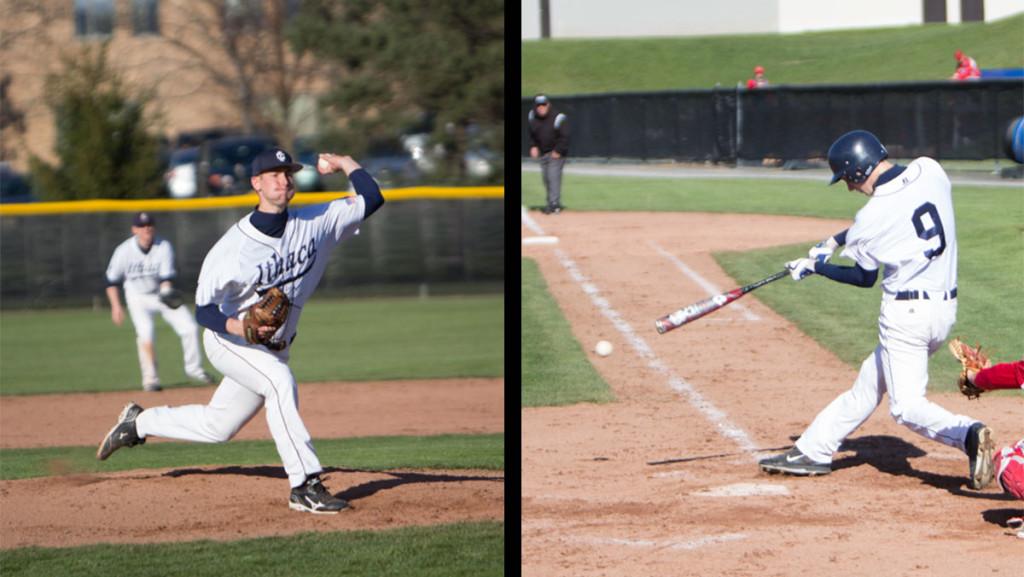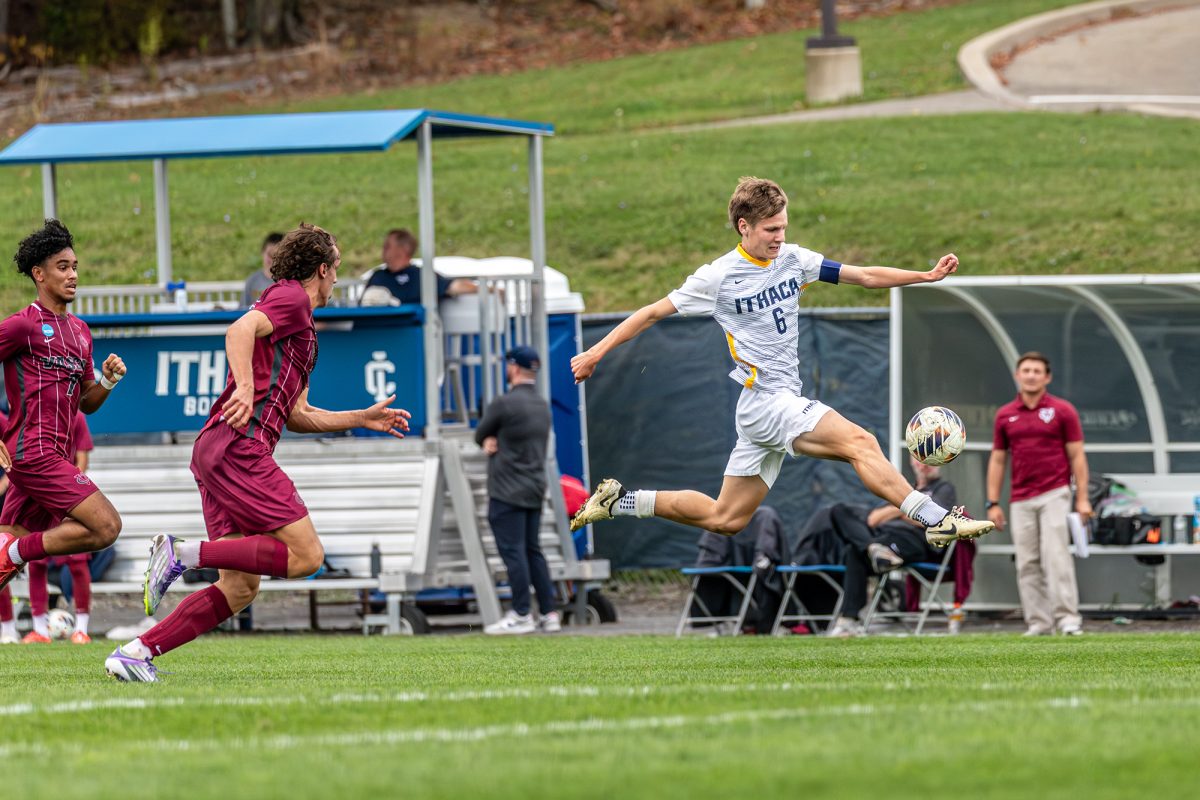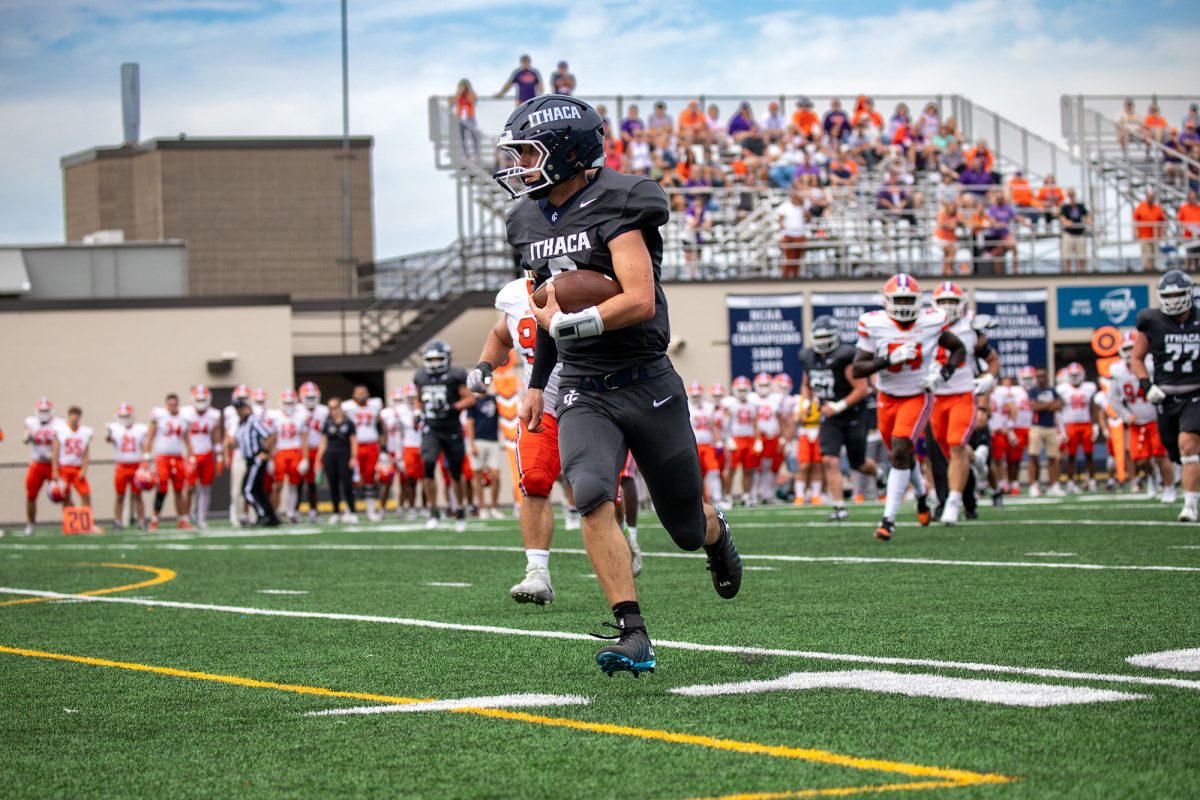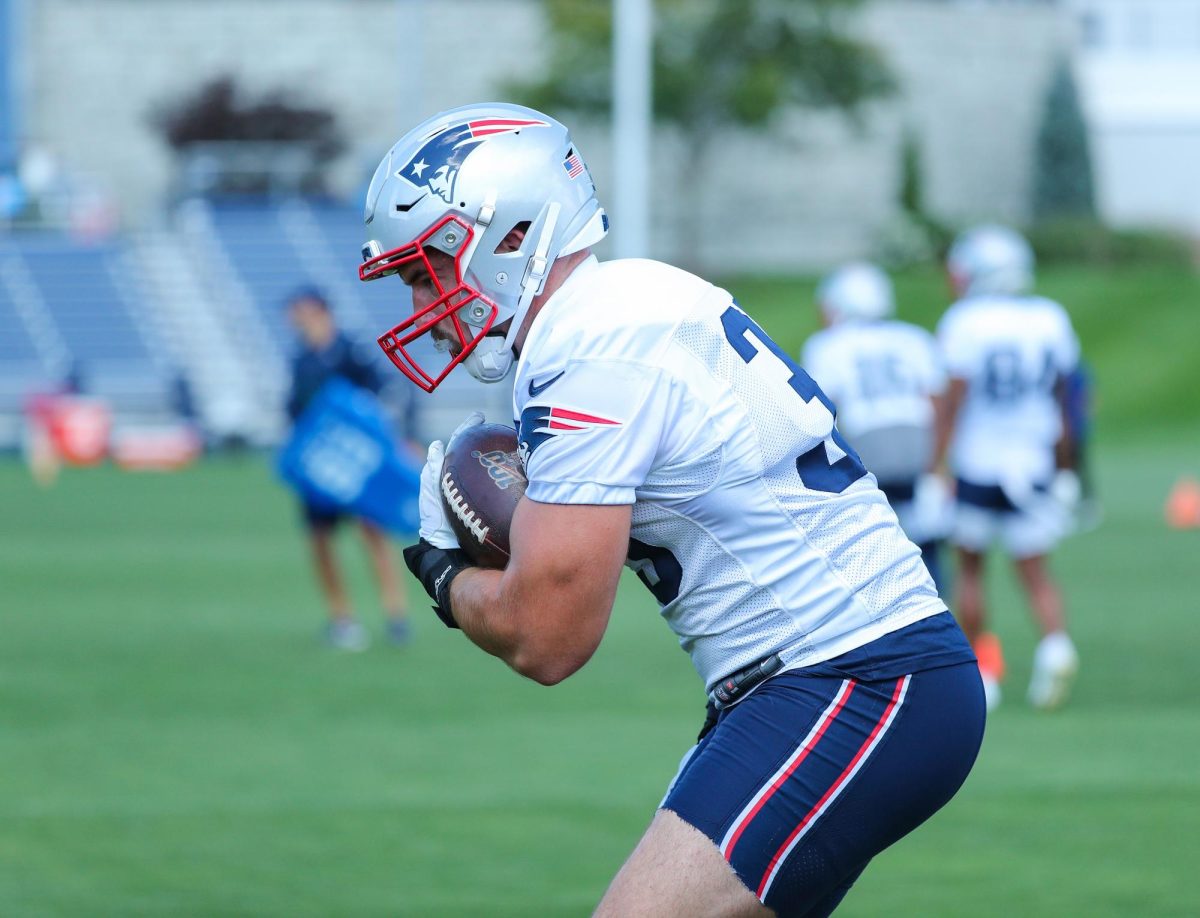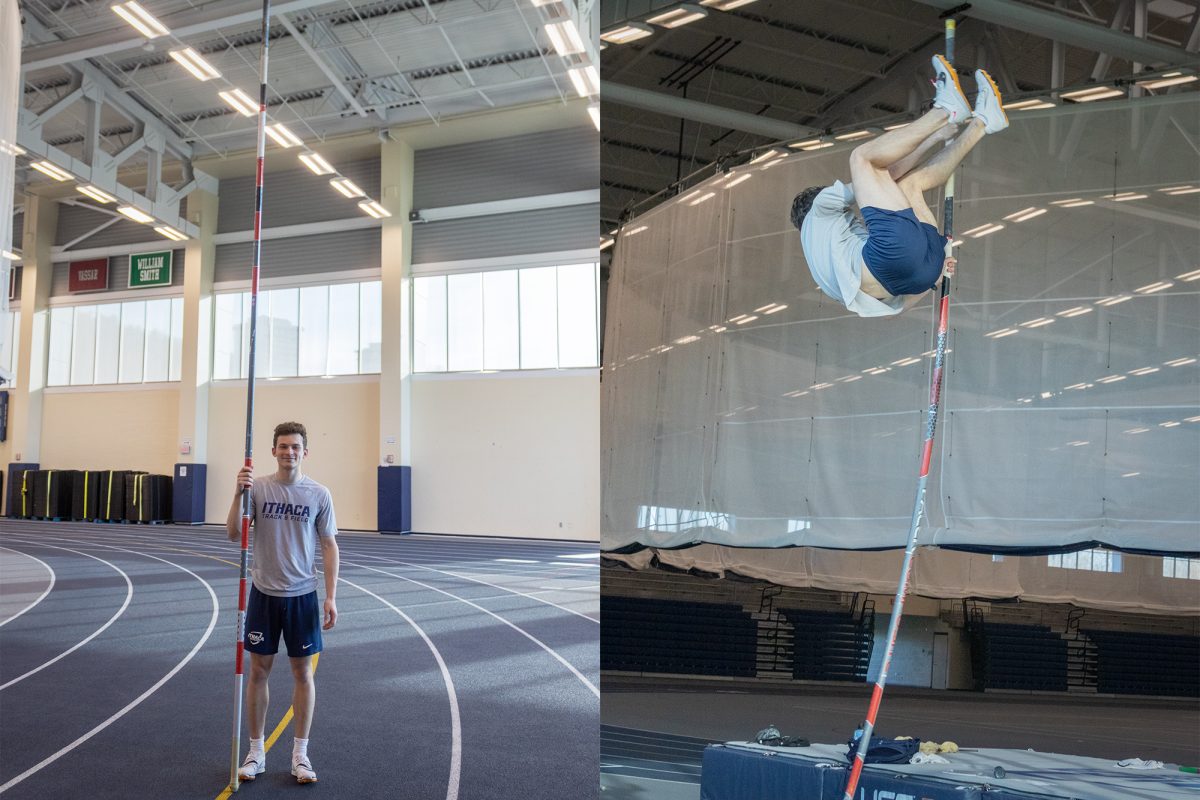In the baseball world, there are many differences between being left-handed and right-handed. Although the majority are right-handed, left-handers have multiple advantages.
Baseball head coach George Valesente said if it comes down between a left-hander and a right-hander, the left-hander is more likely to be chosen not because of skill but because of simply being left-handed.
The Ithaca College baseball team consists of 29 players. Six of its players are left-handed batters, and two players are left-handed pitchers, which is 20 percent and 6 percent of the team, respectively.
Valesente said that throughout his playing and coaching career, he’s seen more right-handed pitchers than left-handed pitchers.
“If you’re playing five games, four times you will face a right–hander, and one time you face a left-hander,” Valesente said. “Hitters have more experience against right-handers because they face many more right-handers than they do left-handers.”
Sophomore catcher Jonathan Ripic is a left-handed batter on the team. He said he can remember when he began hitting as a leftie during his childhood.
“I started in Little League and messing around in the backyard,” Ripic said. “One day, I was batting left-handed and hit the ball harder than I did right-handed. That was probably in the fourth or fifth grade.”
Valesente said left-handed batters like to hit against right-handed pitchers. Since the team only has two left-handed pitchers, the coaches switch off between throwing left-handed and right-handed during practice to give them experience.
“I’ll throw batting practice for them often,” Valesente said. “We have a left-handed throwing coach and a right-handed throwing coach, so we like to alternate back and forth so a hitter has a chance to see both.”
Ripic also said being a left-handed batter comes to an advantage when playing on certain baseball fields.
“Lefties are going to hit towards right field than left, most of the time,” Ripic said. “Our team was playing in a ballpark that had a short distance to the right field. It made it nice because I hit the ball farther over the fence.”
Sophomore pitcher Chad Bartlett is one of the two left-handed pitchers on the team. He said being left-handed in college baseball brought him college recruitment benefits.
“In baseball, it’s a known advantage to be a left-handed pitcher,” Bartlett said. “As a righty, you have to throw low 90s, high 80s. As a leftie, if you’re throwing in the mid-80s, schools will look at you.”
Valesente said left-handed pitchers typically throw differently from right-handed pitchers since the ball will typically curve out instead of following a straight path.
“Left-handers traditionally have trouble throwing the ball straight,” Valesente said. “Basically, what it would do is it would tail away from the right-handed batter. Right-handers don’t have that natural tail in their fastball.”
However, there are also many downsides to being left-handed. Valesente said left-handers can only play four of the eight field positions: first base, left field, right field or center field. Meanwhile, right-handers can play all eight. He said this has to do with the way the players turn their bodies when they go to throw, catch and field the ball at these positions.
Especially when playing first base, Valesente said, a left-hander has a defensive advantage over a right-hander. For example, left-handers have a better reach off the bag for balls hit in play when playing first base than right-handers since they do not have to stretch over their bodies as right-handers would have to.
“They can look like they’re going to home, and then they can throw to first,” Valesente said. “Righties are more tied to turning quick and throwing to first or throwing to home, so the lefties have an advantage when it comes to that aspect of that. That’s a huge advantage because if a lefty has a good pick–off move, it’s hard to steal — it hampers your running game.”
Bartlett said despite the fact that he is outnumbered in the baseball world, he doesn’t take being left-handed as a bad thing.
“There are certain aspects of baseball where, as a leftie, I don’t even have to do the drills,” Bartlett said. “It is all the same when it comes down to it.”



